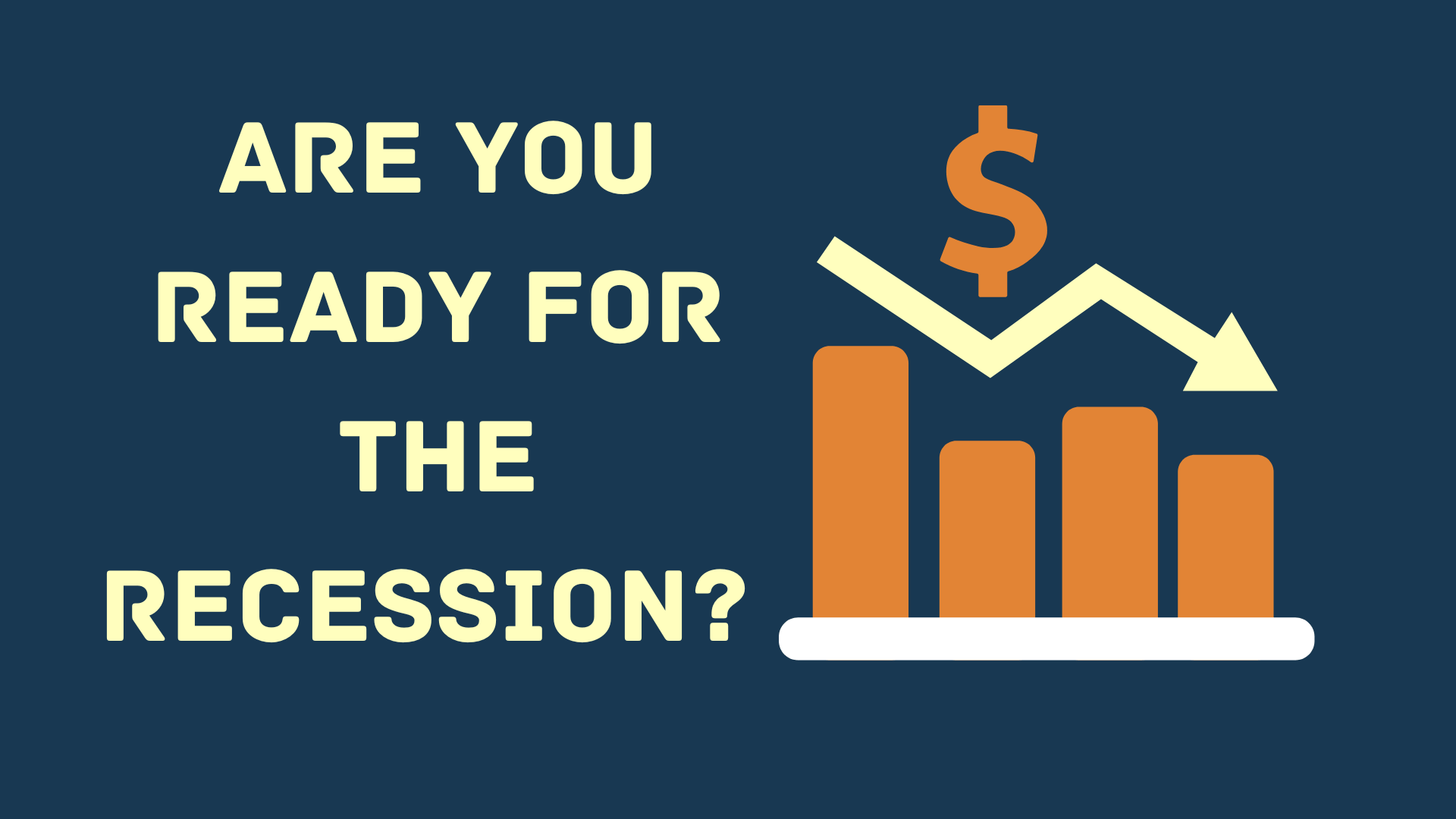How Small Businesses Can Recession-Proof and Build a Strong Brand
In the face of an impending recession, small businesses can recession-proof themselves by cutting unnecessary costs, diversifying income, and building a trusted brand.
As recession looms over the UK, businesses face unique challenges. The local economy, heavily reliant on small businesses, could feel the impact of a downturn. Recent analyses from Bloomberg highlight volatility in the U.S. stock markets, signaling potential economic instability. Additionally, the 18.5-year real estate cycle, as discussed by Henry George and further analyzed by Fred Harrison, suggests that a downturn is imminent. In this post, we’ll dive into practical steps for recession-proofing your business and building a strong brand.
Illustration with the text 'Are you ready for the recession?' featuring a downward-trending graph, arrow, and dollar sign indicating financial loss.
What Is a Recession?
A recession is defined as a significant decline in economic activity that lasts for several months or more. It affects businesses by reducing consumer spending, which can harm small businesses that rely on discretionary spending.
Why It Matters to Small Businesses in the UK
Small businesses across the UK — particularly those in the service sector — are likely to feel the effects of a recession more acutely than larger corporations. This is largely due to reduced consumer spending and limited financial reserves that make smaller operations more vulnerable to economic turbulence.
A 2023 study by Novuna Business Finance found that 45% of UK small business owners cited economic uncertainty as a key barrier to growth — up significantly from the previous year. These concerns were particularly strong among seasonal and service-based businesses, which often rely on predictable consumer demand to stay afloat.
These findings highlight just how important it is for small business owners in the UK to prepare in advance, diversify income streams, and strengthen their brand presence in order to weather economic downturns.
Recession-proofing is particularly important for small businesses because, unlike corporations, we're much less likely to get government bailouts or have non-cyclical products in our portfolio to balance our losses.
For context, non-cyclical products and services are those that people buy, no matter the state of the economy, such as food, medicine, or any other essentials accessible at low prices.
Naturally, cyclical products are the opposite; expensive and even luxury products and services people buy when the economy is growing and more money is going around.
Corporations are made up of a wide array of brands that encompass both cyclical and non-cyclical ones, precisely so that they can cash in on cyclical products when the economy is booming and balance out losses with non-cyclical products when the economy slows down.
For example, the L'Oreal Corporation owns both Yves Saint Laurent (cyclical) and Garnier (non-cyclical), among many other brands in their portfolio.
So what can we as small business owners do when recession is looming above our heads?
Certainly not put our heads in the sand!
Actionable Steps to Recession-Proof Your Business
Cut Costs Before the Recession Hits
Don’t wait until the economy starts shrinking—start cutting unnecessary expenses now. Focus on eliminating non-essential subscriptions, renegotiating contracts, and optimising overhead costs. Remove unnecessary staff members or freelancers, to audit whether they're necessary to your operations, ask yourself, would I be disappointed or relieved if this person quit today? If the answer is the former, keep them on board because they're doing important work helping your business grow, which will be crucial in hard times. However, if the answer is the latter, cut your losses as soon as possible.
Diversify Your Income Channels
We have to start thinking like corporations and see how we could create a portfolio that's made up of products/services at different price points. Consider offering new products, workshops, or digital services. This could mean launching an online course, offering consultations, or selling digital products that can be easily scaled.
Strengthen Your Brand
In times of economic hardship, consumers become very mindful of their spending and only choose brands that actually matter to them. Brands that people trust and have emotional connections with will always triumph over those that don't. Building a strong brand takes time, which is why getting started as soon as possible is key. As a huge plus, strategically building a brand will actually eliminate a lot of marketing tasks and cut costs, too. The big problem, however, is that many small business owners have no idea how they could strategically build and strengthen their brands.
Ready to recession-proof your brand?
If you're a UK small business owner, now’s the time to turn your brand into a powerful business asset that attracts, converts, and builds long-term value — even in a downturn.
Join our 3-hour live workshop and work directly on your brand with expert guidance.
✅ Hands-on brand strategy
✅ Real-time feedback
✅ Only 10 seats available
You'll leave this workshop with the foundations of a strong brand and the clarity and tools needed to continue building on it.
FAQ Section
-
Focus on reducing overhead, diversifying your products/services, and building a brand that customers trust during tough times.
-
While larger corporations may receive bailouts, small businesses can apply for local grants or tax breaks specific to the economy, but they will be very difficult to obtain, there just won’t be enough funding to go around.
Resources
For more information on the topics discussed here:
Workshop: Transform Your Brand Into a Business Asset
A hands-on, 3-hour live session designed to help small business owners build a brand that’s resilient during economic uncertainty.
https://www.en-ableacademy.com/transform-your-brand-into-a-business-asset
Bloomberg – Stocks Hit by Dizzying Swings as Bond Yields Surge: Markets Wrap
This article discusses the intense volatility in U.S. stock markets triggered by escalating trade tensions, reflecting broader economic instability concerns.
https://www.bloomberg.com/news/articles/2025-04-06/s-p-500-futures-slump-as-tariff-turmoil-deepens-markets-wrapHenry George Foundation – Mechanism of the Real Estate Cycle
Explores the foundational economic principles behind real estate cycles and how land speculation contributes to economic downturns.
https://henrygeorge.org/bob/mechanism-of-the-real-estate-cycleFred Harrison and the 18-Year Property Cycle (via Jeremy Jacob)
A breakdown of Fred Harrison’s modern application of the 18-year cycle, including predictions and phases of the real estate market.
https://www.jeremyjacob.co.uk/news/36/How-about-a-theory-of-the-18-year-property-cycleNovuna Business Finance – UK Small Business Growth Challenges (2023)
A survey of over 1,000 UK small business owners, highlighting economic uncertainty as a major barrier to growth.
https://www.novuna.co.uk/news-and-insights/business-finance/eight-in-ten-small-businesses-cite-barriers-to-growth-as-fears-over-market-uncertainty-rise-sharply


